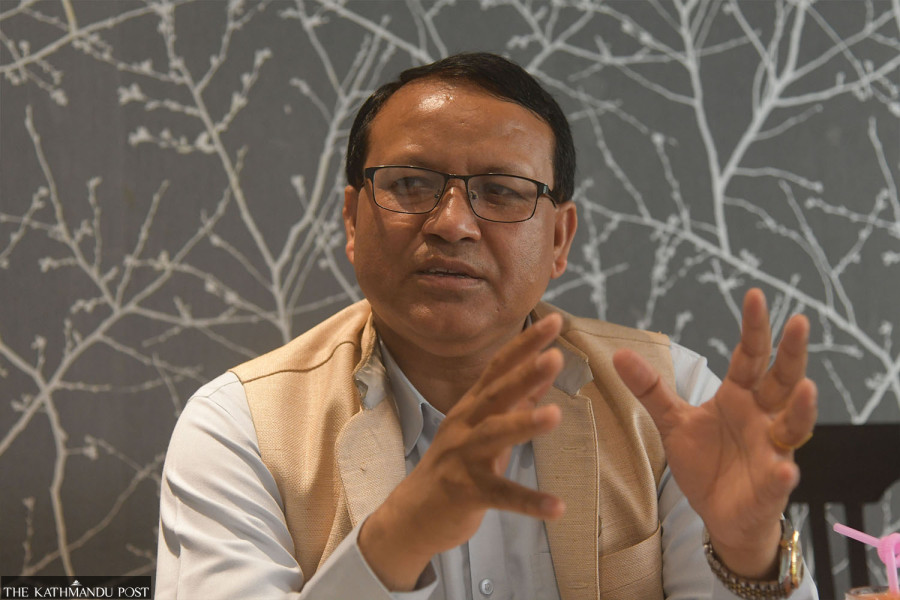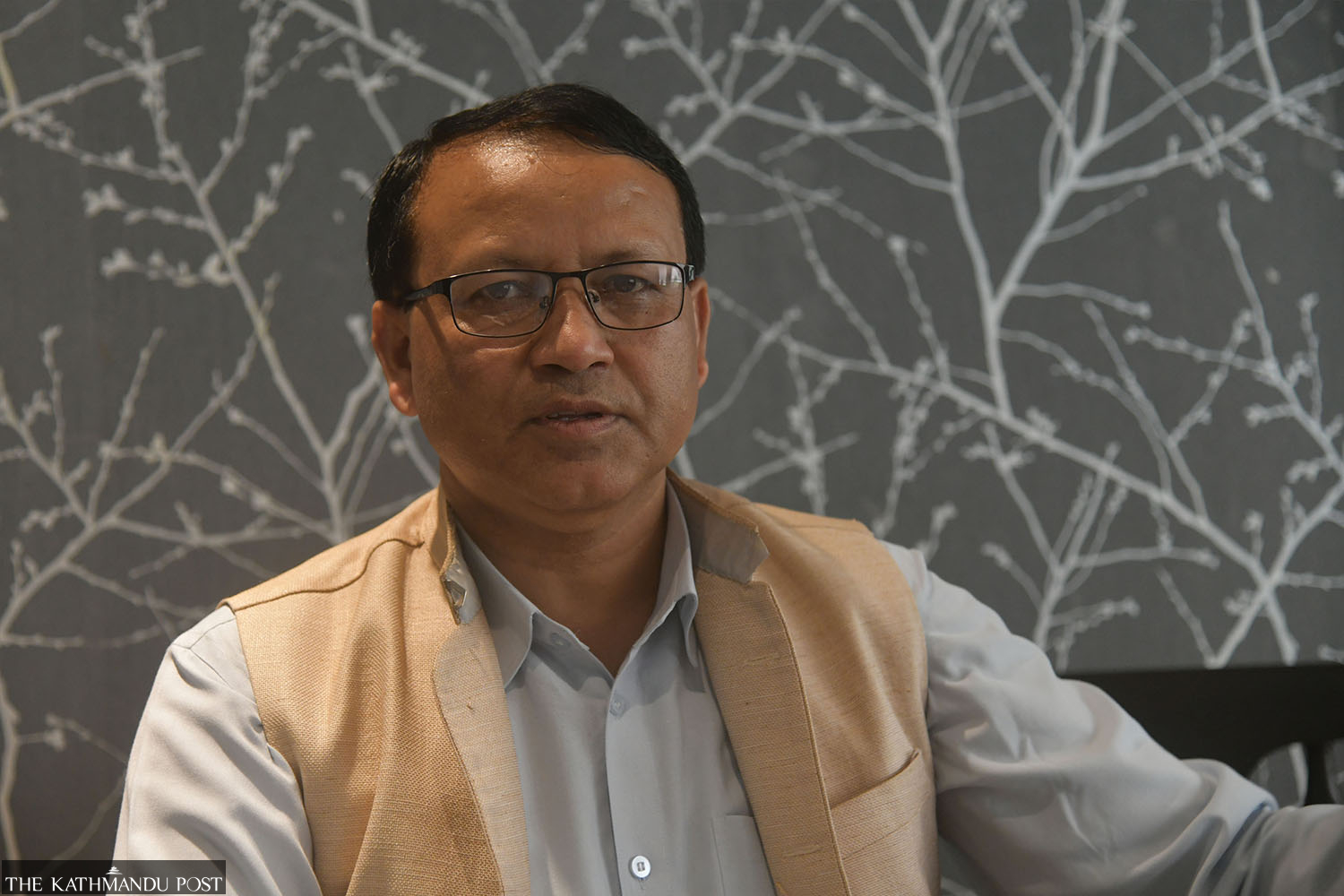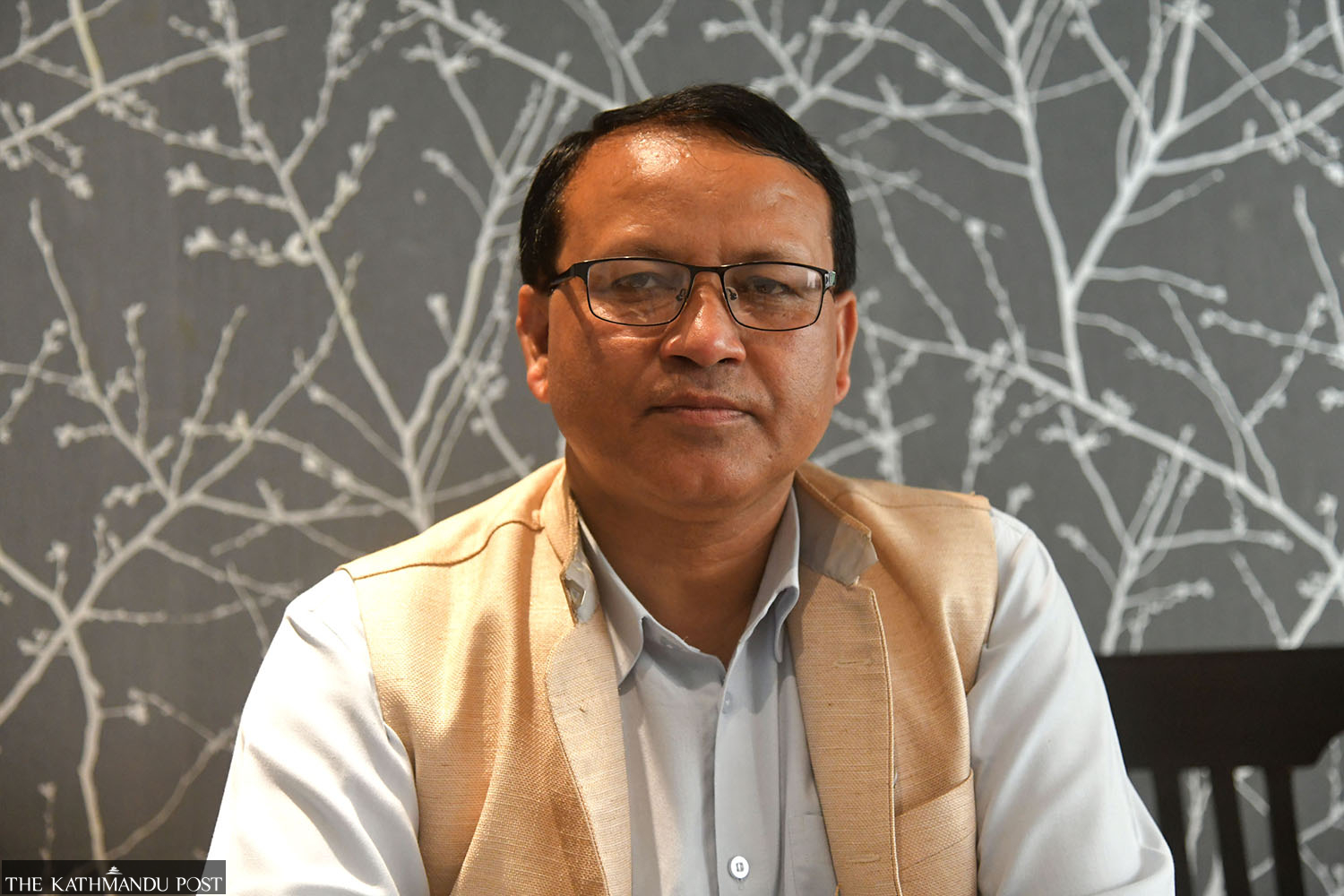Interviews
There can be a separate report if ruling parties try to impose their majority
No chance of keeping Lamichhane away from investigation even though the probe committee ToR doesn’t mention his name.
Thira Lal Bhusal
Lawmaker Jiban Pariyar, a joint general secretary of the Nepali Congress, the main opposition, was a member of the four-member taskforce that prepared the terms of reference (ToR) of the parliamentary committee to probe the cooperative scam. The taskforce finalised it after a prolonged dispute over whether to categorically mention Deputy Prime Minister and Home Minister Rabi Lamichhane’s name while defining the committee’s jurisdiction. The Post’s Thira Lal Bhusal talked to him about the ToR finalisation process and other aspects of the probe.
It took weeks to finalise the ToR and jurisdiction of the parliamentary committee formed to probe the cooperative scam. How did you finally reach an agreement?
I will give a brief context first. Cases of cooperative frauds had been made public even in the past. But this time, some groups and gangs were seen to be working in an organised way to embezzle billions of rupees deposited by common people. Some established people, including those active in politics, were found to be misusing the people’s hard-earned money. This issue was thus urgent and our party Nepali Congress raised it strongly in Parliament. We had raised this issue even when we were in the government [before March 4]. We had raised it with erstwhile home minister Narayankaji Shrestha in parliamentary committees and other platforms. We had talked to him about the involvement of lawmakers and other politicians in such scams.
But the Congress raised this issue more strongly after the party quit the government.
This is true, and for a good reason. We demanded a parliamentary committee to probe this issue after our party’s exit from the government because Rabi Lamichhane, someone linked with some big cooperative scams, became home minister. We raised this issue after he was allowed to lead the same ministry and police agencies that were supposed to be investigating the scams. Earlier, various agencies within Nepal Police and other government bodies were looking into the matter. Erstwhile home minister Shrestha had assured us of an independent and fair investigation.
Lamichhane transferred police officials who were investigating the scams, and tried to protect cooperative operators involved in wrongdoing. Based on all these activities, we concluded that a parliamentary probe committee is a must and we firmly stood for the same. Initially, we raised this issue in Parliament without obstructing House proceedings but the government compelled us to disrupt the meetings after it refused to address our concerns.
The prime minister tried to give Lamichhane a clean chit by saying that he was not involved in the cooperative scams. Also, the Nepal Police chief at a parliamentary committee meeting said that the home minister wasn’t under investigation as he had done nothing wrong. In the meantime, the attorney general issued a letter stating that no cooperative-related case was registered against Lamichhane.

It became clear that the government agencies wouldn’t investigate the issue independently. Then, we raised the issue strongly and we even had to obstruct Parliament meetings. After the pressure, top leaders from the ruling as well as opposition parties agreed to form a parliamentary committee to investigate the matter. The leaders formed a task force led by Law, Justice and Parliamentary Affairs Minister Padam Giri and entrusted us with preparing the committee’s ToR and defining its jurisdiction.
But at the task force meetings, members from the ruling parties lobbied to define the committee’s jurisdiction in a way that only allowed for investigation into the wrongdoings of cooperatives and their operators but not those involved in syphoning money from there through illegal means. They argued that only those who issued the loans should be made liable, not those who obtained it. Their intent was to protect Rabi Lamichhane. But I insisted that our duty is to find where the common people’s money has been spent or misused and then to return the money to the depositors. I insisted on investigating Lamichhane as various studies have shown his involvement in the misuse of depositors’ money.
Then, we started exchanging written proposals. We exchanged and discussed many such proposals in writing. We insisted on mentioning the names of Lamichhane and the Gorkha Media Network—where Lamichhane and GB Rai invested tens of millions of cooperatives’ money—and ensuring that the depositors get their money back. After a long negotiation, members from the UML became a bit flexible. But the Rastriya Swatantra Party of Lamichhane continued to be rigid. Then, we finally agreed to mention the names of the cooperatives from where Lamichhane and his former colleagues had obtained money and to name Gorkha Media Network but not Lamichhane.
But won’t keeping out the name of the sitting home minister create more confusion and disputes?
There is no need to be confused. The ToR has stated the name of Gorkha Media Network, where Lamichhane and his team invested the money they got from the cooperatives, and the ToR’s Annex-2 has a list of cooperatives from where they obtained the money. It has also stated that “responsible officials of the company” involved in such transactions would also be investigated. Even other firms and individuals linked to the transactions will be probed. So there is no chance of keeping Lamichhane away from investigation. The committee’s jurisdiction defined in the ToR is clear on this.
Will your party ask for Lamichhane’s resignation after the committee starts investigating him?
Our party is yet to formally demand the home minister’s resignation. But questions have been raised about him in Parliament, in various public platforms and in the media. Also, the general public has raised this issue. He knows the committee will summon him for interrogation. A few months ago, when a minister [from Congress] was summoned by the Commission for Investigation of Abuse of Authority, Lamichhane was the one who strongly demanded the minister’s resignation in Parliament. He will soon face the parliamentary inquiry committee. Let’s see how he faces it.

Leaders from ruling parties including the prime minister have accused the Congress of personally targeting Lamichhane after he refused to join a Congress-led coalition in which he was offered the prime ministerial position.
Leaders from new parties should understand that political leaders engage in dialogue with all political forces. Some meetings are convened in a strategic way. This is natural in a democracy. Also, Lamichhane met with our party president. But they spread a rumour that our party president offered him the prime ministerial position. That’s not true. The argument that we targeted him after he refused to join our coalition is baseless. The Congress has officially decided that the probe committee can investigate any of our members suspected of wrongdoings. Has any other party made such a decision officially? We have also officially challenged the home minister to prove the allegations he labelled at our party leaders from Parliament’s rostrum. We have also challenged him to investigate and prove the charges.
When the names of head and members of the parliamentary probe committee became public, many thought that the parties didn’t give due importance to the panel as they nominated relatively low-profile lawmakers. Why didn’t the parties choose powerful leaders to investigate a national crisis of this magnitude?
This is a wrong perception. All members are federal parliamentarians. They shouldn’t be judged based on their personalities and profiles. The committee is powerful because it has a mandate from the House, and its jurisdiction and the ToR give it power. What we should carefully follow is their work. They can invite experts and specialists—such as chartered accountants, bankers, account specialists—if they require technical expertise during the investigation.
Lamichhane himself is chair of the fourth-largest party, which has a decisive role in the ruling coalition. Prime Minister Pushpa Kamal Dahal and CPN-UML chair KP Sharma Oli had initially ruled out any need of investigation into the home minister. In this context, can the committee members freely conduct the investigation?
I am confident that even the committee member from the RSP can’t defend his leader when the documents and facts show that the money was illegally released. How can other members protect him? I believe they will conduct the investigation independently and come up with a consensus report. Documents, facts and figures guide investigation. This isn’t like leaders giving statements on public platforms. We are not saying he must be proven guilty as the Congress has blamed him. He may prove to be innocent after investigation. We should accept if the evidence proves Lamichhane innocent. The bottom line is that the investigation should be fair.

Many Congress leaders are also involved in cooperative scams and other corruption cases. So people suspect that leaders will eventually trade off and the probe panel will be only an eyewash.
This investigation cannot be weakened under any pretext. I am saying this based on the documents and evidence I have studied. Also, the media and other stakeholders such as the study report of Pokhara Metropolitan City and the investigation report of Rupandehi District Police, among others, have already made ample evidence public. It’s not easy to acquit the guilty.
What will Congress’ approach be if the committee, where ruling parties have a majority, fails to decide by consensus and members take decisions on a majority basis?
In the seven-member panel, there are two members from our party and one from the Rastriya Prajatantra Party. If those from the ruling parties pushed for a wrong decision based on their majority, members from opposition parties will counter that and register their differing views. If such a situation arises they will be free to make the reality public and they can even bring out a different report.
Was Congress under pressure to reach an agreement as there were reports that the government was preparing to unveil the budget through ordinance citing opposition’s House obstruction?
We weren’t worried about that. In fact, the prime minister’s initiatives and his seriousness to end the House deadlock played a crucial role in helping us reach this agreement.




 8.67°C Kathmandu
8.67°C Kathmandu





.jpg&w=200&height=120)






